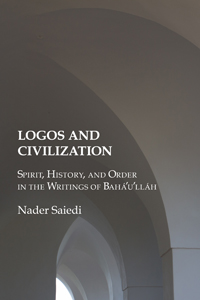As the Bahá’í community becomes an ever more familiar figure on the international landscape, attention has been increasingly attracted to the teachings of its founder, Bahá’u’lláh. In this groundbreaking study, Nader Saiedi addresses key controversies and problems in the current academic literature about Bahá’u’lláh’s writings. Saiedi approaches the subject from sociological, historical, philosophical, spiritual, and theological perspectives and draws on the vast body of previously untranslated original Persian and Arabic texts. Analyzing selected works that represent the three stages of Bahá’u’lláh’s revelation, he argues for the conceptual continuity of Bahá’u’lláh’s teaching throughout His life, from the inception of His mission in Tehran’s Siyah-Chal dungeon to the last books He wrote in exile in Ottoman Palestine.
Chapter 1 sketches the background context, in Islamic Sufism, of Bahá’u’lláh’s early mystical works and presents a trenchant critique of the reductionism of some scholarship on the Bahá’í Faith. The author argues that because Bahá’u’lláh’s spiritual and social vision transcends the standard categories of both traditional East and modern West, His writings can only be understood if seen in their own terms. He identifies the key principles underlying the novel paradigm of Bahá’u’lláh's message as: spiritual transcendence, historical consciousness, and global unity.
Chapters 2 and 3 explore the structure of Bahá’u’lláh’s mystical treatises, the Four Valleys and the Seven Valleys, which describe the stages in the spiritual journey of the human soul. Chapters 4 and 5 discuss the Kitab-i-Iqan (The Book of Certitude), with its exposition of manifestation theology, interpretive principles, and Bahá’u’lláh’s historical approach to spirituality, culture, and society. Chapter 6 analyzes the Kitab-i-Badi (The Wondrous New Book), in which Bahá’u’lláh reaffirms the foundational principles of the Kitab-i-Iqan while refuting the arguments of His Babi opponents. Chapters 7 and 8 investigate the structure and constitutive principles of the Kitab-i-Aqdas (The Most Holy Book). The concluding chapters discuss the philosophical premises of Bahá’u’lláh’s concept of the "New World Order" and the theory of order and governance found in His writings, emphasizing its qualitative difference from both Middle Eastern and Western political philosophy and showing that it represents a new conception of civil society and state.
Logos and Civilization is a timely, original, and probing investigation of the writings of Bahá’u’lláh, whose visionary insights into the spiritual, social, economic, and political dimensions of humanity in the context of globalization have only begun to attract the attention they merit.




